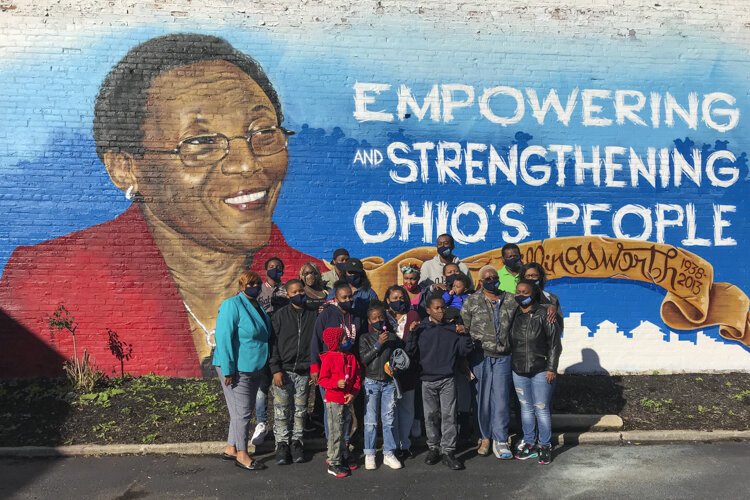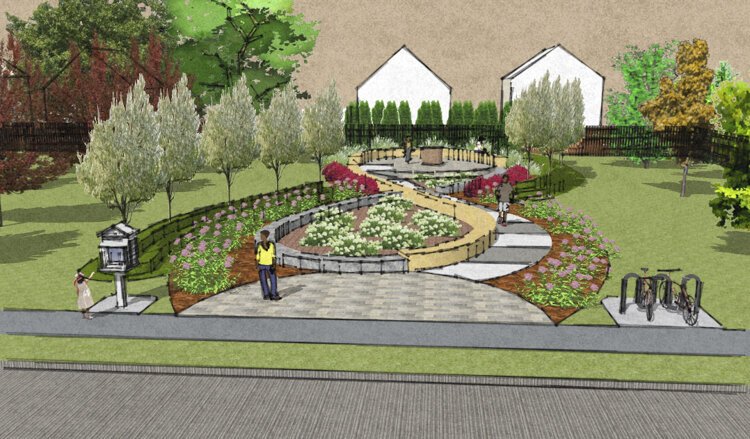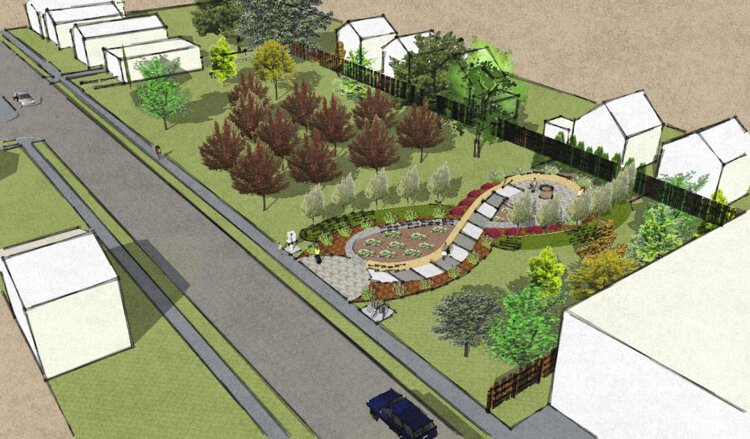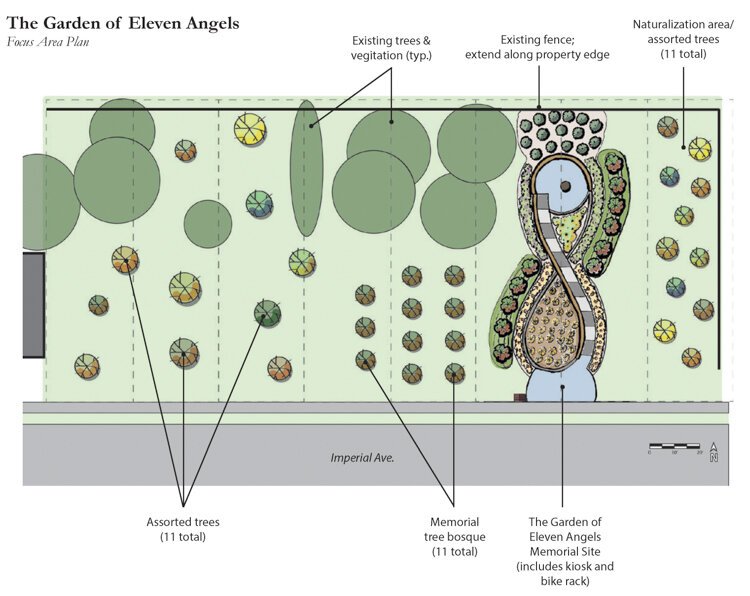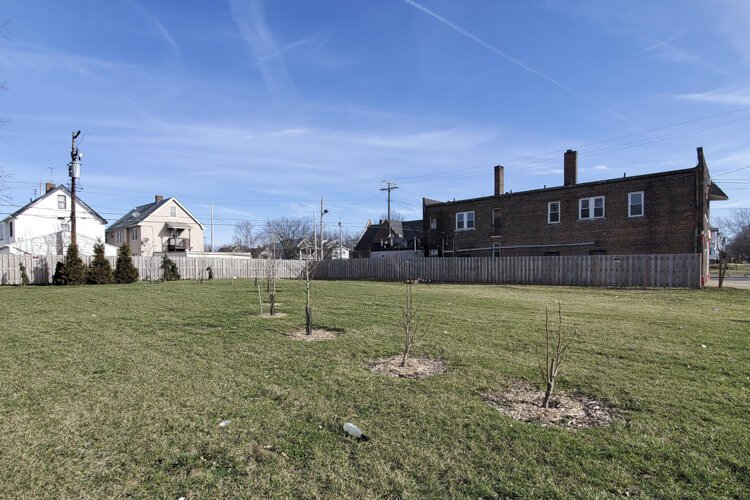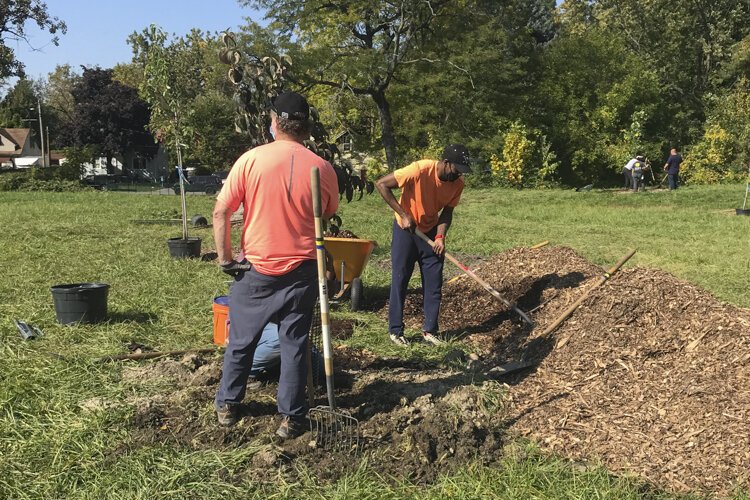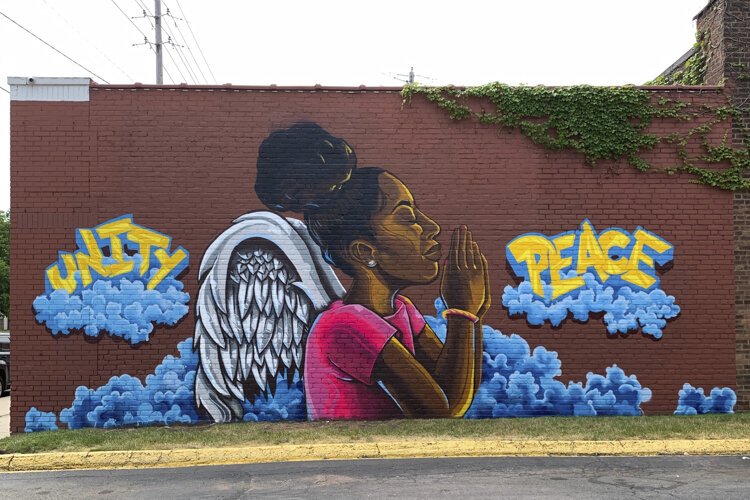Out of sorrow comes beauty: How beautification projects unite Cleveland neighborhoods
In October 2009, when the bodies of 11 women were discovered in and around Anthony Sowell’s Imperial Avenue home, Clevelanders—especially Mount Pleasant residents—and even the nation, were in a state of shock.
The convicted serial rapist and murderer Sowell’s rampage was over, but the victims’ families and the residents of the city’s southeast neighborhood could not find peace. Eleven years later, Burten, Bell, Carr Development, Inc. (BBC), along with the Western Reserve Land Conservancy, LAND studio, Black Environmental Leaders, Milano Monuments, Cleveland City Council, and members of the community and neighborhood churches, are attempting to turn 12205 Imperial Ave. into a place of healing, community, and peace.
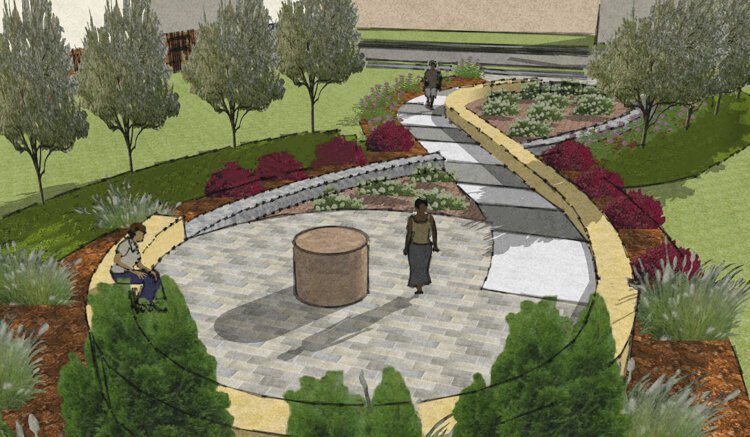 Many houses, including Sowell’s on Imperial Avenue—known as the site of the “Imperial Avenue Murders”—have been torn down. In late October, BBC and the Land Conservancy began implementing plans to create the
Many houses, including Sowell’s on Imperial Avenue—known as the site of the “Imperial Avenue Murders”—have been torn down. In late October, BBC and the Land Conservancy began implementing plans to create the
“We’re cleansing the land—literally and figuratively,” says BBC executive director Joy Johnson. “Because Imperial Avenue was associated with the crime, and because of how gruesome it was, I think we’ve been trying for a long time to rid the street of that stigma.”
Like so many community development corporations in Cleveland, Burten, Bell, Carr— which in just four square miles serves the Central, Kinsman, Buckeye, and Fairfax neighborhoods—focuses on community transformation and citizen empowerment to develop, unite, and create a thriving community.
And while a land conservation project may seem a little uncharacteristic of an inner-city task, Johnson says the Garden of 11 Angels is exactly what the neighborhood needs. The group is applying for Clean Ohio funds for the project.
“We’re not a typical applicant because it’s usually not in the urban core,” says Johnson of the grant funding. “We still see this as a way of conserving vacant land and giving a new use for it.”
Jacquie Gillon, community engagement specialist and diversity coordinator for the Land Conservancy, agrees that the project is just what the neighborhood needs.
This is a major step towards turning a site of horrific violence into a community garden honoring the 11 women who were brutally murdered here so many years ago,” Gillon said in a statement. “We hope this park will be an anchor for improvement and prosperity throughout the neighborhood. The brutal past of these properties will be transformed into a garden for reflection, comfort and peace.”
BBC and the Land Conservancy, as well as pastor Jimmy Gates of Zion Hill Baptist Church, are working with project manager David Wilson at LAND studio to develop the park design, based on the original drawings of architect Kevin Robinette, who has been involved with the project since 2012. The design calls for planting native trees and flowers, a memorial plaque, and open green space for the community to enjoy.
In 2016, the Land Conservancy purchased the land the former Sowell house sat on—and plans to purchase seven more parcels—that will be the Garden of 11 Angels. Shortly after the purchase, arborvitae and magnolia trees were planted. Johnson says the project’s partners hope to officially break ground in the spring.
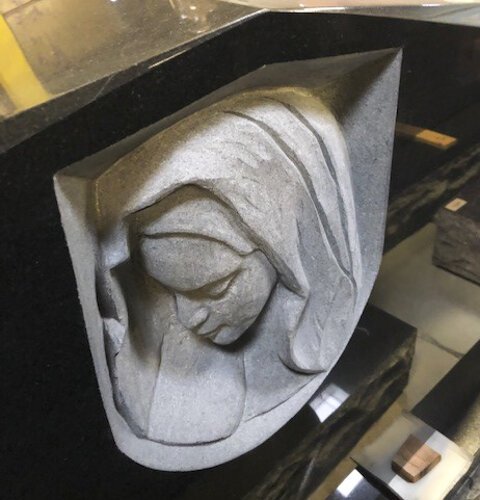 'A living testimony’
'A living testimony’
When completed, the Garden will have a total of 22 trees—11 magnolias and 11 arbor vitae have been planted so far—walkways, benches, and a bike rack. Milano Monuments donated a stone angel monument honoring the 11 murdered women and inscribed with poet Maya Angelou’s poem, “Still I Rise.”
The teams will break ground in the spring, says Wilson, when most of the prep work hardscaping will be done.
“This one right here is going to be a living testimony to these 11 women, for the 11 angels,” says bishop Eugene Ward of Greater Love Missionary Baptist Church in a video while standing at the site. “They were angels in the sight of the people who loved them and cared for them, and the Western Reserve Land Conservancy has helped us try to be able to make what we have been talking about for years become a reality.”
Western Reserve Land Conservancy will oversee the construction of the planned park improvements and then transfer the property to BBC for long-term ownership and management of the Garden. BBC’s Neighborhood Landscaping Enterprise, which hires and trains neighborhood residents to provide landscaping maintenance services for properties within their service area, will be responsible for the long-term maintenance of the Garden of 11 Angels.
Gillon says $100,000 has already been raised for the project. “It doesn't get us where we need to be, but it’s enough to get us started,” she says. The partners involved hope to officially open the Garden by fall of 2021.
Gillon says the horror of the past and Sowell’s actions are already being replaced with positive energy.
“When we first planted four trees and put stone down, the negative energy was lifted,” she says. “There’s something lifegiving and we want to give life to that space.”
Beautifying a landfill
Meanwhile, residents and members of the Union Miles Development Corporation (UMDC) in the Union Miles neighborhood in October attempted to not only help replenish the Cleveland tree canopy, they also restored greenspace on a one-acre parcel of land on East 93rd Street, between Sandusky and Way Avenues —known as Jack Rabbit Hill.
Neighborhood residents and teams from UMDC and Western Reserve Land Conservancy came together Oct. 9 to plant 100 trees and turn the former construction debris landfill into stunning greenspace.
The Union Miles neighborhood was once a bustling community of immigrants who worked in the local steel mills. After the Great Depression, the collapse of the mills, suburbanization, and the Great Recession, the neighborhood was plagued by abandonment and disinvestment.
Today, Union Miles residents—95% Black and more than 69% of residents living below the poverty line —deal with poverty, unemployment, crime, and health issues of its citizens. However, the work of the UMDC is transforming the neighborhood through programs like tree planting, public art campaigns, and community engagement.
UMDC executive director Roshawn Sample attributes many of the neighborhood’s struggles to predatory lending practices in the 90s; residents moving to the suburbs; and an influx of renters who don’t necessarily have a vest stake in the neighborhood.
Sample says UMDC is working to change those problems, starting with the tree planting and other beautification efforts.
The tree planting project was made possible in part with a $50,000 grant from Bank of America and the Arbor Day Foundation. The Union Miles neighborhood and Cleveland represented one of just four U.S. cities chosen for the grant.
“We are so excited to be working with the Western Reserve Land Conservancy and Bank of America for the opportunity to bring trees into the Union Miles community,” says Amanda Cramer, planning project manager for UMDC. “This project will be very complimentary to the work of Union Miles Development Corporation in improving the quality of life for our residents.”
Also in October, the artist Kevin “Mr. Soul” Harp and his colleague Sano painted a mural of UMDC founder Inez Killingsworth welcoming people to the neighborhood at 13014 Miles Ave. Killingsworth’s family came to the site during the unveiling in October.
“We wanted to do it on that corner to honor the woman who founded our [organization],” says Sample.
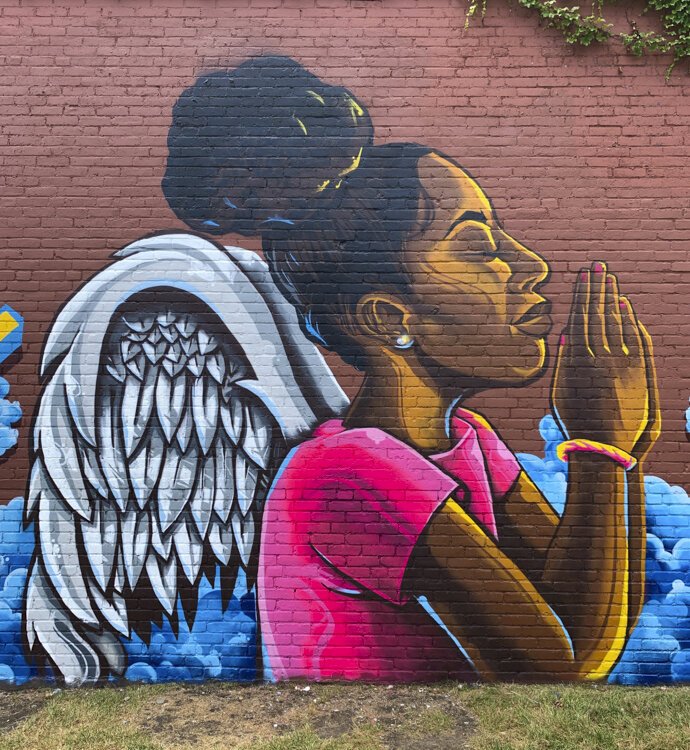 For Juneteenth this year, Mr. Soul also installed a mural at Cheers Bar on East 93rd Street near Union Avenue, called “Revolutionary Prayers.”
For Juneteenth this year, Mr. Soul also installed a mural at Cheers Bar on East 93rd Street near Union Avenue, called “Revolutionary Prayers.”
The murals are part of the UMDC’s 2018 master plan, which outlines a mission to produce more public art in the neighborhood, and were funded by a Gund Foundation grant and money from the Char and Chuck Fowler Family Foundation.
“This process didn’t happen overnight,” says Sample. “We had a very engaged process focus group, and we are very excited about both of these projects happening at the same time.”
Sample says UMDC has plans to continue community improvement efforts throughout 2021 and beyond—with a dream of restoring the Union Miles neighborhood to the bustling, hardworking, and proud community it was and will soon be again.
“Being born and raised here, I know what the neighborhood used to be, what it is [now], and what it can be,” says Sample. “We’re trying to come up with ways of beautifying the neighborhood, because that’s what all residents and stakeholders deserve.”
This story is part of FreshWater’s new yearlong series, Community Development Connection, in partnership with Cleveland Neighborhood Progress and Cleveland Development Advisors and funded in-part by a Google Grant. The series seeks to raise awareness about the work of 29 Community Development Corporations (CDCs) as well as explore the efforts of neighborhood-based organizations, leaders, and residents who are focused on moving their communities forward during a time of unprecedented challenge.


